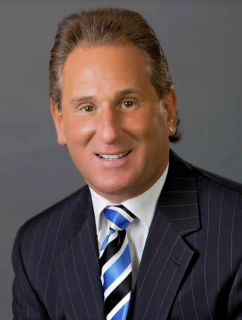 BY PHILLIP E. GOLDSTEIN
BY PHILLIP E. GOLDSTEIN
Managing partner Goldstein Lieberman & Company Certified Public Accountants and Business Advisors
Nothing is sure in this life except death and taxes…but that doesn’t mean that businesses and individuals won’t try to find ways to avoid both. Recently, the IRS declared that a “100% penalty” can be assessed against the person responsible for withholding federal income tax and/or federal employment taxes from employee paychecks and then not handing them over to the government.
The Trust Fund Recovery Penalty, known as the l “100% penalty” is so named because the entire unpaid amount can be assessed against a responsible person (or several responsible persons)—and that includes corporations. The purpose of the penalty is to collect withheld but unpaid federal taxes from individuals who had control over an employer’s finances.
Corporations often protect the individual owner from personal liability for some corporate debts. Not so in the case of unpaid payroll taxes. The IRS can now pass the corporation barrier to reach the person responsible to pay the debt.
So who exactly is responsible? It could be a shareholder, director, officer or employee of a corporation; a partner or employee of a partnership; or a member (owner) or employee of a multi-member LLC. It can also be assessed against an employee of a sole proprietorship or an employee of a single-member (one owner) LLC. That person must be responsible for collecting, accounting for, and paying withheld federal taxes, and willfully fail to remit those taxes (willful means intentional, deliberate, voluntary and knowing, as opposed to accidental).
They also must have and knowledge of and control over the finances of the business. The IRS will look first and hard at individuals with check-signing authority, but employees who simply sign checks and nothing more may be off the hook. Beyond the authority to sign checks, the Courts may consider other factors like whether the individual is an officer or director, owns shares or has an entrepreneurial stake in the company, is active in managing the day-to-day affairs of the company, can hire and fire employees, makes decisions regarding which, when, and in what order debts or taxes will be paid, and exercises daily control over bank accounts and disbursement records.
Sometimes outside parties such as lenders and advisers can be responsible persons. Other examples are a bank in certain circumstances, a board member, an estate executer or even a volunteer. Not only can they be not paying employment taxes has even lead to prison, in some instances.
If you can be held personally liable for failure to remit withheld employment taxes — whether or not you’re an owner or officer of the company — make sure you or your company are paying them. In some cases, the IRS can go after several people. And even if you’re innocent, you may have to prove that you aren’t a responsible person. That could be expensive. Talk to with your tax adviser about what records you should be keeping and make sure to avoid exposure to this expensive penalty.

You must be logged in to post a comment Login